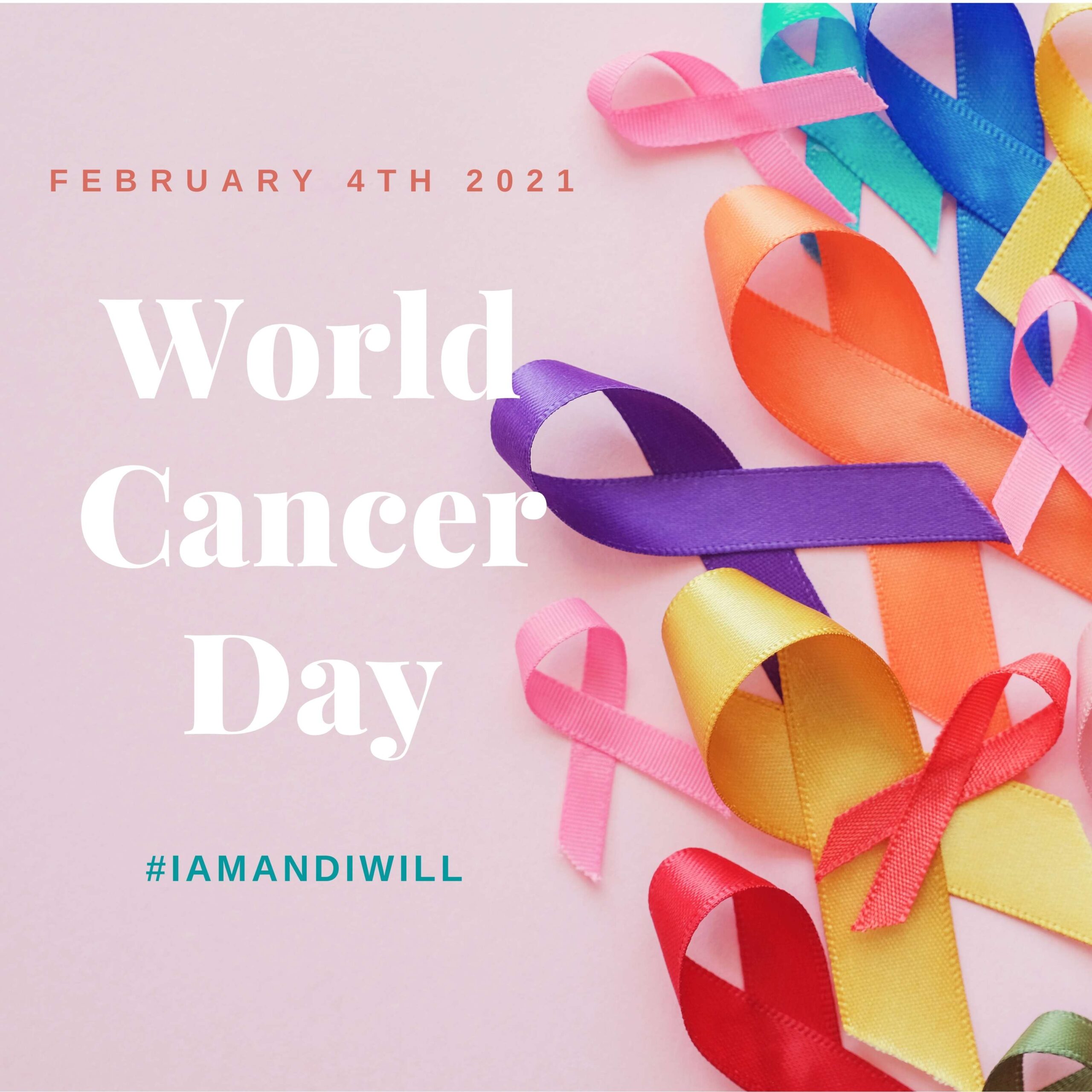
World Cancer Day
By Joanie in Health Tips, Lifestyle Tips on 4 February 2021
Today is World Cancer Day. This is a day that unites people, communities and entire countries to raise awareness and take action.
To find out more visit
Cancer is a disease which occurs when changes in a group of normal cells within the body lead to uncontrolled, abnormal growth forming a lump called a tumour; this is true of all cancers except leukaemia (cancer of the blood). If left untreated, tumours can grow and spread into the surrounding normal tissue, or to other parts of the body via the bloodstream and lymphatic systems, and can affect the digestive, nervous and circulatory systems or release hormones that may affect body function.
Key Cancer Facts
- 10 million people die from cancer every year.
- At least one third of common cancers are preventable.
- Cancer is the second-leading cause of death worldwide.
- 70% of cancer deaths occur in low-to-middle income countries.
- Up to 3.7 million lives could be saved each year by implementing resource appropriate strategies for prevention, early detection and treatment.
Help Reduce Your Risk Of Cancer:
Cancers can be caused by a number of different factors and, as with many other illnesses, most cancers are the result of exposure to a number of different causal factors. It is important to remember that not all cancers can be prevented. However, around 1/3 of cancer cases can be prevented by reducing behavioural & dietary risks.
Alcohol – The evidence that all types of alcoholic drinks are a cause of a number of cancers is now stronger than ever before. Evidence suggests that , the more alcohol drinks people consume, the higher the risk of many cancers.
Being overweight – Excess weight has been linked to an increased risk of developing 12 different cancers, including bowl & pancreatic cancers. In general, greater weight gain, particularly as adults, is associated with greater cancer risks.
Diet and nutrition – Experts suggest that diets and nutritional intake, particularly diets high in red meats, processed meats, salted foods and low in fruits and vegetables have an impact on cancer risks, particularly colorectum, nasopharynx and stomach.
Physical activity – Regular physical activity not only helps to reduce excess body fat and the cancer risks associated with this, but being physically active can help to reduce the risks of developing colon, breast and endometrial cancers.
Tobacco – Tobacco smoke contains at least 80 different cancer-causing substances (carcinogenic agents). When smoke is inhaled the chemicals enter the lungs, pass into the blood stream and are transported throughout the body.
Lonising Radiation – Manmade sources of radiation can cause cancer and are a risk for workers. These include radon, x-rays, gamma rays and other forms of high-energy radiation. Prolonged and unprotected exposure to ultraviolet radiations from the sun, sunlamps & tanning beds can also lead to melanoma & skin malignancies.
Early Detection Testing- Early Screening Tests means testing for early signs of cancer before people have any symptoms. If cancer is detected at an early stage, before symptoms even appear, it is easier to treat and there is a better chance of survival.
